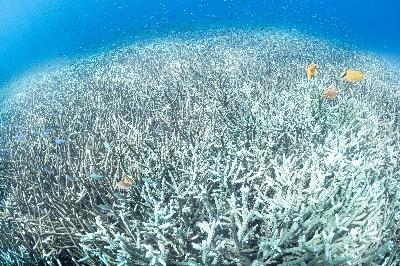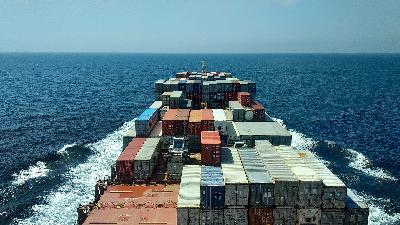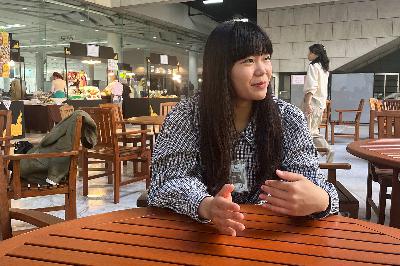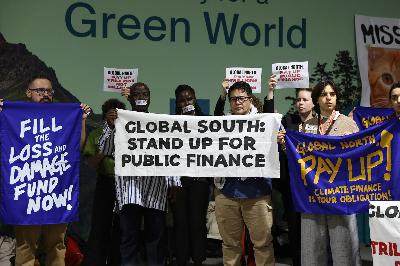Discover The Lid is On
The Lid is On

The Lid is On
Author: United Nations
Subscribed: 30Played: 407Subscribe
Share
Description
This flagship podcast series from UN News takes its name from the words that correspondents at UN Headquarters in New York hear each night, at the end of the working day. We highlight the in-depth human stories behind the UN’s work and the way that it touches and impacts ordinary lives around the world.
During UN High-Level week UN News is releasing a daily podcast mini-series, designed to make sense of what’s going on at our New York HQ. Each episode of Focus on the Future will have a main topic linked to the focus of the day, and will include highlights from the GA debate, original interviews, and a colourful wrap up of the side events.
During UN High-Level week UN News is releasing a daily podcast mini-series, designed to make sense of what’s going on at our New York HQ. Each episode of Focus on the Future will have a main topic linked to the focus of the day, and will include highlights from the GA debate, original interviews, and a colourful wrap up of the side events.
204 Episodes
Reverse
In this episode of The Lid Is On, experts discuss the urgent need to restore the Ocean, which is facing a host of threats that could drive millions of marine life species into extinction and even endanger humanity.The protection of marine biodiversity will be under discussion at the UN Ocean Conference in June, where advocates will join politicians and members of the private sector to share solutions, including legal protections for the high seas, which lie outside national waters.The guests are Peter Thompson, the Secretary General's Envoy for the Ocean, Alfredo Girón, Head of the Ocean Action Agenda at the World Economic Forum, and Minna Epps, who runs the Ocean Program at the International Union for the Conservation of Nature.
The shipping industry moves 90% of world trade—and produces nearly 3% of global greenhouse gas emissions.In this episode of 'The Lid is On', Arsenio Dominguez, Secretary-General of the International Maritime Organization (IMO), explains how a new UN agreement sets the sector on a path to net zero by 2050, introduces a global carbon pricing plan, and addresses concerns from the world’s most vulnerable economies.Music by Joachim Harris, all rights reserved, Ketsa.
A Thai woman has been talking about how she was tricked into handing over more than $300,000 to a criminal gang that entrapped her in an elaborate scam that began as a supposed case of identity fraud and which led her to believe that she and her family could be facing prison.A new report released by the UN Office on Drugs and Crime (UNODC) says that the transnational organized crime groups in Asia which carry out these types of scams are expanding their operations deeper into the region and beyond.In this episode of The Lid Is On, Laura Gil reports from Bangkok where she met Wannapa Suprasert from Thailand who is currently living and working in the United States.
In this episode of The Lid Is On, Conor Lennon from UN News speaks to Luz Maria de la Mora, the Director of the International Trade Division at UNCTAD, about the uncertainty that unilateral tariffs are having on the global trade outlook, and why the consequence could be particularly serious for developing economies.Music by Joachim Harris, all rights reserved
The Beijing Declaration and Platform for Action, a key UN policy document adopted in 1995, has been credited for several major advances for women, from legislation outlawing domestic abuse to inspiring a new wave of young gender justice activists.But despite undeniable progress in gender relations over the past 30 years, inequalities between men and women persist and, in recent years, there has been a notable backlash against the very concepts of feminism.In this episode of The Lid Is On, Conor Lennon from UN News speaks to Laura Turquet, the deputy head of the research and data team at UN Women, and Lydia Alpizar, a Costa Rican feminist activist based in Mexico City, to find out why this renewed attack against feminism is taking place, and what it means for the decades-long fight for gender equality.Music by Joachim Harris, all rights reserved
Just 35 hours later than advertised, the UN Climate Conference in Baku, Azerbaijan wrapped up, with an agreement to triple the amount of climate finance paid to developing nations to $300 billion per year, by 2035.The deal is a definite step forward, but the final sum is far less than the $1.3 trillion that climate experts say these countries need in order to adapt to the crisis.On this episode, we look back at the second and final week of COP29, what was achieved, and what comes next.Music by Joachim Harris, all rights reservedLINKSUN News coverage of COP29: https://news.un.org/en/events/cop29All the agreements reached at COP29: https://unfccc.int/documents
COP29, this year’s UN Climate Conference, is being called the “climate finance COP”, because delegates are expected to sign off on a beefed-up funding target to replace the existing $100 billion per year commitment. The final figure the negotiators arrive at remains to be seen and it could be anywhere from a few hundred billion, to over a trillion dollars per year.On this episode of The Lid Is On, we explain what has been achieved so far, and why the deal gavelled through on carbon markets is important. We also find out what the UN is doing to prevent the rush for the minerals needed for the climate transition turning into a “stampede for greed.’Correspondents in Baku: Nazrin Babayeva and Lara Palmisano.Music by Joachim Harris (all rights reserved)UN News coverage of COP29: https://news.un.org/en/events/cop29
The risk of the world’s major powers engaging in conflict is at its highest level since the Cold War, and the possibility of nuclear war breaking out is greater today than it has been for several decades.On the final episode of Focus on the Future, Conor Lennon and Ben Malor from UN News concentrate on international peace and security, and how the Pact for the Future could help to reduce tensions.We’ll hear from the UN’s heads of Peacekeeping and Peacebuilding (and explain the difference between the two concepts), and the Director- General of the International Atomic Energy Agency, who warns against “normalizing” the idea of using nuclear weapons.Our email: thelidison@un.orgSummit of the Future Explainer: A new global peace plan for ‘uniquely dangerous’ times | UN NewsUN Web TVGA Debate pageSDG Media ZoneInvisible killer: What is antimicrobial resistance? | UN News
In the Pact for the Future UN Member States pledged to do more to fight the climate crisis, a subject that has dominated several sessions at UN Headquarters this week.On Thursday’s episode of Focus on the Future, Conor Lennon and Sachin Gaur discuss some of the big climate-related events, including a General Assembly meeting on sea level rise.The rate of sea level rise has more than doubled over the last three decades, causing havoc in low-lying and small island developing countries, driving populations away from their homes. The leaders of some of the most affected nations speak out.Music by Joachim Harris, all rights reservedLINKSOur email: thelidison@un.orgHigh-Level Meeting on Sea Level Rise | General Assembly of the United NationsUN Future LabUN Web TVWhat to expect at the United Nations general debate | UN NewsGA Debate pageSDG LoungeSDG Media Zone
Reforming the Security Council, to make it more representative of today’s world, has been under discussion for decades. The subject made it into the Pact for the Future, adopted earlier this week. Does this mean that it is more likely to happen?Global governance is the key theme of today’s show, which is dominated by the opening of the General Debate, when Heads of State, Prime Ministers and Presidents gather for speeches and backroom talks and deals.Conor Lennon and Shanaé Harte from UN News break down the big issues at UN Headquarters on Wednesday’s edition of Focus on the Future.Music by Joachim Harris. All rights reservedLINKSOur email: thelidison@un.orgWhat to expect at the United Nations general debate | UN NewsGA Debate pageHome | UN Web TVSummit of the Future Explainer: Improving the way we run the world…and beyond | UN NewsPact for the Future
Crippling debt burdens are holding many African countries back: some of them are paying more on repayments than on health, education and infrastructure.On today’s show Conor Lennon is joined by Sachin Gaur from the UN News Hindi Unit, to cover the events focused on sustainable development and rethinking the entire international financial architecture. The big question is, how we can make it fairer?Also, star wattage has been lighting up Headquarters. Edward Norton and Meryl Streep were among the artistic talents at HQ, advocating for the environment and Afghan women.Music by Joachim Harris, all rights reservedLINKSthelidison@un.orgSummit of the Future | UN NewsSummit of the Future 2024 - United Nations | United NationsHome | UN Web TVFFD4 | Financing for Sustainable Development Office (un.org)SDG Lounge | Summit of the futureSummit of the Future Explainer: The push to connect a digitally divided world and counter AI threats | UN News‘Irrefutable’ need for global regulation of AI: UN experts | UN NewsSummit of the Future Explainer: Time to rethink ‘outdated and ineffective’ international financial architecture | UN News
On the first episode of Focus on the Future, our mini-series running throughout High-Level Week of the UN General Assembly, Conor Lennon and Shanaé Harte explain what the Summit of the Future is all about, how to bring back trust between countries and why UN HQ was full of young people all weekend!Contact us: thelidison@un.orgLINKSUN News Summit of the Future page Summit of the Future | UN NewsSummit of the Future explainer Planning ahead: 5 things to know about the UN’s landmark Summit of the Future | UN NewsSummit of the Future main site Summit of the Future 2024 - United Nations | United NationsSDG Lounge SDG Lounge | Summit of the future
Since the end of the COVID-19 pandemic, the numbers attending High-Level Week at UN Headquarters in New York have steadily ticked upwards, and this year is set to be a packed event.If that sounds overwhelming, worry not. UN News is releasing a daily podcast mini-series, designed to make sense of it all.Each episode of Focus on the Future will have a main topic linked to the focus of the day, and will include highlights from the GA debate, original interviews, and a colourful wrap up of the side events.The production team welcomes any questions and suggestions: conor.lennon@un.org
The future of UN peacekeeping and the “new models” it needs to create to remain relevant in the 21st Century are set to be discussed at the landmark Summit of the Future taking place in New York from 22 September.There are currently 11 UN missions around the world, mainly in Africa and the Middle East.Their goal is to help countries torn by conflict to create the conditions for lasting peace.Participants at the Summit of the Future will discuss, the global architecture for international cooperation, which includes peacekeeping.Cristina Silveiro sat down with the head of UN peacekeeping operations, Jean-Pierre Lacroix to take stock of how the UN and its partners can contribute to lasting peace.
Workers with the UN’s sexual and reproductive health agency, UNFPA, have some of the toughest assignments going in the humanitarian field, helping protect new mothers and babies often born in the midst of intense conflict zones.For this episode of UN News’s flagship podcast, The Lid is On, two UNFPA representatives reflect on their life-saving work with UN News’ Shanaé Harte. They discuss some of the most difficult challenges they've faced while providing insight into what changes can be made to improve women’s rights worldwide.
A Ugandan man, some of whose family and friends were abducted in the East African country, tells the story of his journey from war-torn childhood to becoming the youngest ever African nominated for the Nobel Peace Prize.Victor Ochen grew up in northern Uganda at a time when the Lord’s Resistance Army, or LRA, was terrorising the region with violent abductions, forced child soldier recruitment, and widespread atrocities against civilians.For 21 years the focus of his life was survival, struggling to find enough to eat in a variety of internal displacement camps.To mark International Youth Day, UN News’ Julia Foxen spoke to Mr. Ochen about how his choice of nonviolence at only 13 forever transformed his life, highlighting the immense vulnerability of youth in conflict zones alongside their potential to transform the future of society.
The cultivation of sisal plants by some of the most vulnerable communities in southern Madagascar is helping to tackle desertification and allow people to stay on their land, thanks to a project by the UN Development Programme.The seasonal Tiomena wind, a fiercely strong wind that blows over the coastline, has driven sandy soils across productive farmland forcing many people to give up their subsistence farming activities.But the planting of sisal has helped to reverse the trend as Daniel Dickinson reports for the Lid is On Podcast from southern Madagascar.
Dominica is described as highly disaster-vulnerable: the country is regularly hit by hurricanes and, when the last one swept through in 2017, it caused huge devastation across the island.The government, led by President Sylvanie Burton, the first woman and the first member of the indigenous Kalinago community to be the country’s Head of State, wants to make Dominica the world’s first ‘climate resilient country’. But, as the climate crisis threatens to lead to increasingly intense and frequent hurricanes, is this feasible?Conor Lennon from UN News met President Burton and Lorenzo Sanford, the youngest-ever chief of Dominica’s Kalinago community to find out how they plan to achieve their goal.
The vast majority of small island developing States (SIDS) are heavily dependent on polluting, and expensive, fossil fuels for their energy needs: some spend around a quarter of their national budgets on imported fuel. However, for Trinidad & Tobago, fossil fuels have been a boon to the economy: the country has exploited its oil and gas reserves for several decades and profited from the wealth. But now, those reserves are running low. Is this the moment for Trinidad & Tobago to kick the fossil fuel habit, and exploit the kinds of renewable resources that are abundant in SIDS?Conor Lennon from UN News went to the capital, Port of Spain, to put the question to Sheena Gosine, a sustainable energy analyst at Trinidad’s Ministry of Energy; Kishan Kumarsingh, the head of Multilateral Environmental Agreements at the Ministry of Planning and Development; and Curtis Boodoo, lecturer and assistant professor at the University of Trinidad & Tobago, and an expert on the energy transition.
Like many island economies, Dominica experiences high youth unemployment, and recent events, in particular Hurricane Maria and the COVID-19 pandemic, have combined to make the search for work even harder.A UN-backed initiative designed to improve the employment options for young Dominicans, Work Online Dominica, has been successful in helping them to overcome the barriers they face on a small, remote island.Conor Lennon from UN News met aspiring photographer Josiah Johnson, a graduate of the programme, in Dominica’s capital, Roseau, to find out how he, and other young people, have benefited from Work Online Dominica.



















